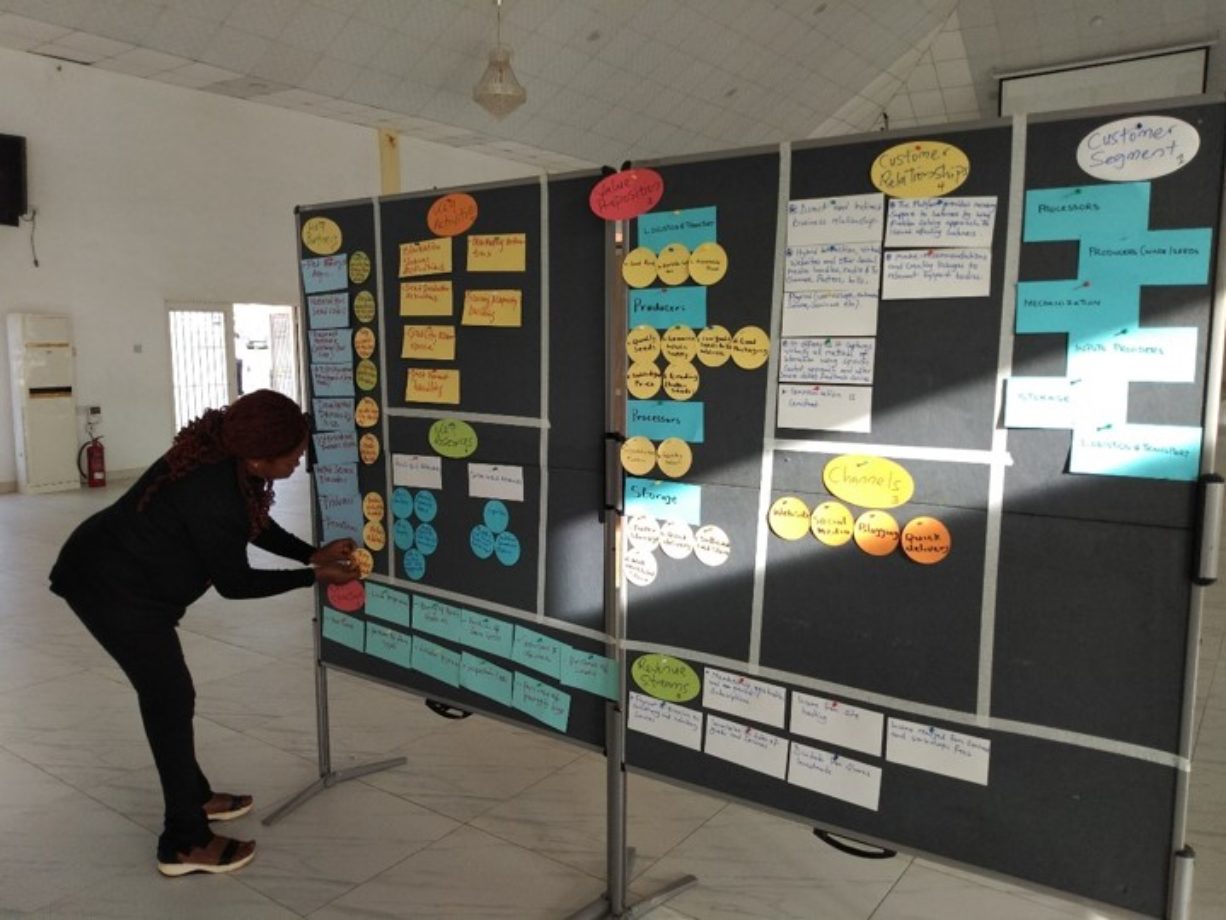
While it is impossible to imagine German cuisine without the potato, in Nigeria and Cameroon it still enjoys a comparatively niche existence. However, the potential is there: demand is greater than local production can supply; with good agricultural practice and quality seeds, yields could be multiplied. And, on a dietary level, the potato provides important nutrients. However, due to the still low degree of organisation in the value chain (VC), the potential of the potato is currently barely being exploited. Stakeholder platforms offer a promising approach to developing potato VCs. These bring together representatives from the various members of the potato VC and enable them to work together to promote development of the potato sector. Together, they can identify bottlenecks in the VC, develop solutions for more efficient functioning or negotiate common positions for strategies or political representation of interests. With its many years of experience in the field of organisational development and facilitating negotiation processes, the AHA is supporting the establishment of two such platforms in Nigeria and Cameroon with financial and logistical support from the GIZ.
In Nigeria, a core group (made up of groups of producers), a processor and researchers have come together to form a platform to jointly increase local production of high-quality potatoes for processing in Plateau State. In the medium term, however, the aim is also to bring further VC stakeholders together at national level and to improve the framework conditions for the functioning of VCs. Since December 2020, the AHA has been accompanying the platform in its development process. Within workshops, platform members work together with AHA trainers to develop the essential foundations of a farmers’ organisation: in the first workshop, vision and strategic goals for the platform were defined. Building on this, the second workshop determined concrete activities and worked on the fundamentals of a business model. At the same time, content worked on in the workshops serves as a valuable contribution to the national strategy for the potato sector, which means that the platform is already making its mark at national level. The next step will be to strengthen the democratic entities of the federation, such as general meetings or elections to the board. Between the workshops, working groups within the platform are being further prepared for their roles thanks to individual coaching initiatives. Building on the platform’s established structures and increased personal capacities, the platform will then be opened up to additional VC stakeholders – from input distributors to ministry representatives.
In Cameroon, on the other hand, there is no formal association of the various stakeholders. To identify differing expectations within the sector and opportunities for joint collaboration, the AHA moderated a workshop in August 2021 that includes over 30 participants ranging from producer groups to ministry directors. Participants displayed enormous motivation for jointly developing the potato VC. Unlike in Nigeria, the platform in Cameroon is to operate at national level from the outset. To this end, an “interprofession” (inter-branch organisation) is to be founded – an organisational structure widespread in francophone Africa and not dissimilar to German trade associations. Workshop participants also defined which fields of activity should be primarily addressed by the interprofession and which tasks will fall to stakeholders. The next steps will be to define together with local stakeholders how best to accompany the development of the interprofession.
While activities and methods in Nigeria and Cameroon differ significantly, one basic principle is at the heart of the AHA’s work: local stakeholders are themselves responsible for defining their goals, organising themselves and acting under their own responsibility. AHA trainers do not prescribe how a process should evolve or what should be at its end, but provide accompaniment on an equal footing. In many cases, this is a new approach for local stakeholders. It therefore often takes some time to internalise this mindset. Once this has been achieved, however, a dynamic is set in motion that is supported and continued by the stakeholders themselves and has an impact lasting even beyond the end of AHA accompaniment.
In addition to the vagaries of working in a local context, COVID-19-related travel restrictions in Nigeria in particular pose a particular challenge to AHA’s human-centred approach. However, working with local trainers enables workshops to be conducted in a hybrid format. This involves a local trainer – who has previously been introduced to AHA methods by an experienced AHA trainer – accompanying participants in a personal exchange. The AHA trainer is connected via webcall and accompanies the workshop remotely. Even if this cannot replace direct personal exchange, the format has so far proven itself. It will therefore further expand the AHA’s extensive toolbox of methods in the future, even if we are very much looking forward to being able to engage as soon as possible in direct, onsite exchanges with our partners once again!
This could be of interest to you:
-
International Cooperation -
International Cooperation Generational change in Uganda – both a challenge and an opportunity
Read -
International Cooperation Enabling partnerships on different levels while simultaneously optimising organisational structures!
Read
